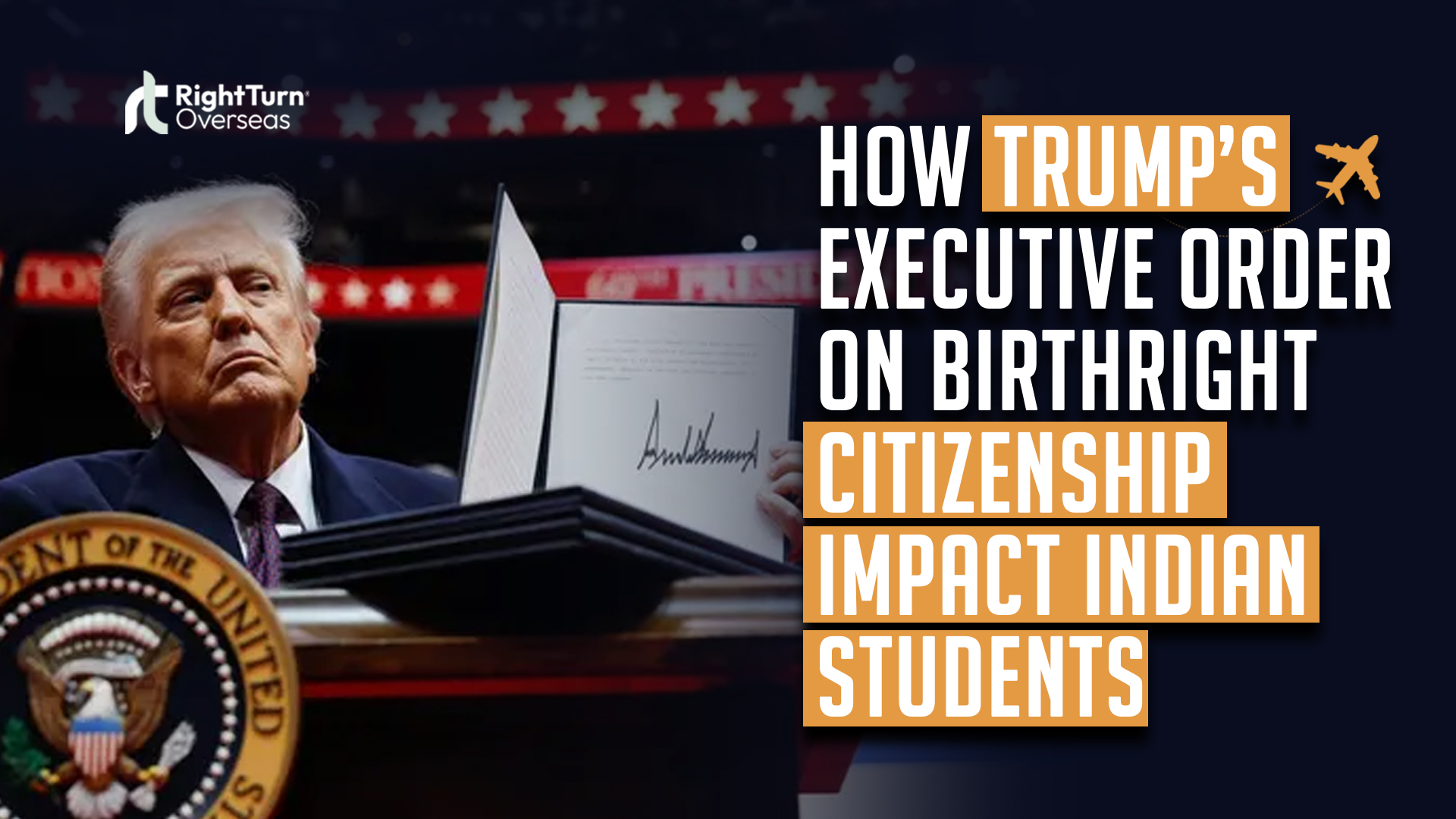Planning on ” Studying in the USA? Trump’s Birthright Citizenship Order Might Be a Plot Twist”
Donald Trump’s recent executive order attempting to end birthright citizenship has stirred considerable debate. For Indian students who dream of studying and eventually settling in the U.S., this development could be pivotal. Here’s an overview of the situation and what it could mean for you.
Executive Order
Trump issued an order aimed at ending birthright citizenship for children born in the U.S. to:
Non-immigrant visa holders, such as F-1 students or H-1B workers.
Individuals living in the U.S. without legal status.
14th Amendment Challenge
Birthright citizenship has long been guaranteed under the 14th Amendment, granting U.S. citizenship to anyone born on American soil. Trump’s order challenges this by restricting citizenship to children whose parents are:
U.S. citizens.
Permanent residents with green cards.
Individuals under certain immigration categories.
Reasons Cited
The executive order claims to address:
Birth tourism: Instances where foreign nationals come to the U.S. specifically to give birth, securing citizenship for their child.
Exploitation of U.S. citizenship by individuals without long-term or lawful residency.
Legal Challenges
Lawsuits have been filed by organizations such as the ACLU and attorneys general from 18 states, arguing that the order violates the 14th Amendment.
Federal courts have temporarily blocked the order while legal proceedings are ongoing.
Criticism
Critics warn that the policy could leave many children stateless, denying them access to education, healthcare, and legal protections.
Legal experts argue that altering the 14th Amendment would require action by Congress or a constitutional amendment, making an executive order insufficient for such changes.
Supporters’ View
Supporters argue that this policy could close loopholes in the immigration system and discourage unauthorized immigration.
Current Status
For now, the order is on hold due to legal challenges, and birthright citizenship remains intact.
Silver Lining for Indian Students
Amid this uncertainty, there is some positive news for international students. Trump’s proposal to automatically grant green cards to foreign students pursuing advanced degrees in the U.S. has caught attention.
The proposal aims to attract and retain top global talent by offering them a clear path to permanent residency.
If implemented, Indian students, especially those pursuing STEM degrees, could benefit from a simplified transition to green card status.
Impact on Indian Students’ Plans
F-1 Visa Holders: While the birthright citizenship debate doesn’t directly affect current students, the general immigration environment may seem less welcoming.
H-1B Aspirants: Indian professionals aiming to transition from H-1B to green cards should keep an eye on how these policy changes unfold.
How to Plan Your Studies in the U.S.
1. Choose High-Demand Fields
Focus on STEM programs, as they often lead to extended OPT periods and more favorable green card opportunities.
Fields like AI, data science, cybersecurity, and renewable energy are in particularly high demand.
2. Focus on Reputable Institutions
Enroll in accredited universities with strong ties to industries and a history of successful placements.
A degree from a recognized U.S. institution can improve your career prospects and immigration options.
3. Build a Strong Profile
Engage in internships, research, and networking opportunities to bolster your resume and build professional connections.
Make use of your university’s career services to start exploring job opportunities early.
4. Understand Visa and Immigration Options
Learn about visa categories like F-1, OPT, and H-1B, as well as potential green card pathways.
Seek advice from immigration experts to understand how these policies may affect your long-term plans.
5. Have a Plan B
Consider alternative destinations like the UK or Australia, where immigration policies might be more favorable.
Choose a degree that aligns with global market trends to keep your options open in case U.S. policies become too restrictive.
In conclusion, while the birthright citizenship debate adds a layer of uncertainty, proposals like the green card pathway for students offer a glimmer of hope. By carefully planning your academic and professional journey, you can still achieve your U.S. career aspirations.
For more details contact us



Leave a Reply